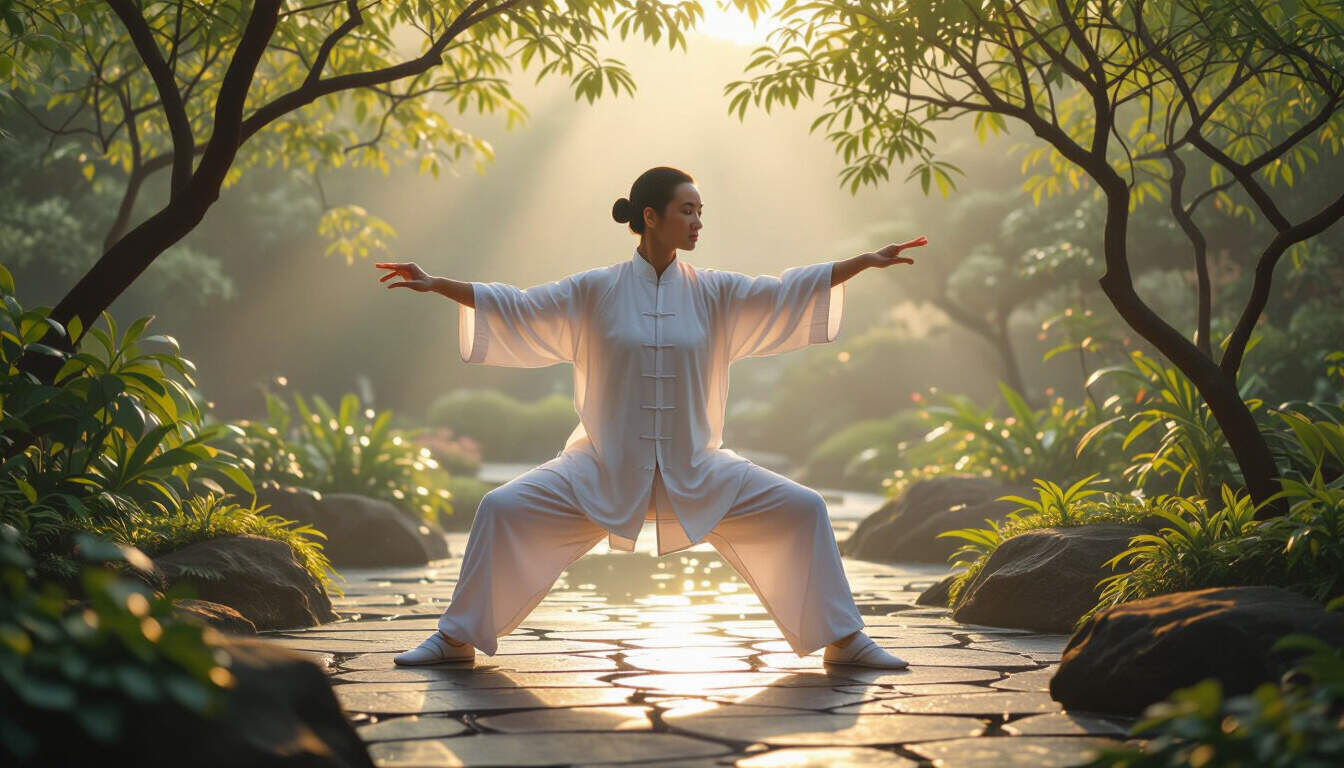Exploring Tai Chi Benefits for Easing Mental Overload
 by Marlene Keeling
by Marlene Keeling
Discover how Tai Chi serves as an effective strategy for cognitive load offloading, offering practical ways to lighten mental burdens and boost productivity in daily routines. This approach combines gentle movements with mindfulness to support clearer thinking for students and professionals.

Cognitive load refers to the amount of mental effort being used in working memory. In our busy lives, it often builds up from juggling tasks, learning new information, and handling stress. Tai Chi emerges as a simple yet effective way to address this. By engaging in its slow, deliberate movements, individuals can start to reduce the strain on their minds.
What is Cognitive Load and Why Does It Matter?
Many people experience cognitive load daily, especially when multitasking or absorbing complex information. This can lead to fatigue and decreased efficiency. cognitive load becomes particularly noticeable for students during exam periods or for professionals in high-pressure jobs. Tai Chi, with its roots in ancient practices, helps by promoting relaxation and focus through physical activity.
The practice involves a series of flowing motions that require balance and coordination. These elements encourage the brain to concentrate on the present moment, thereby lightening the mental weight. For instance, regular sessions can improve attention span, making it easier to handle daily demands without feeling overwhelmed.
How Tai Chi Aids in Offloading Mental Overload
One key benefit of Tai Chi is its ability to foster mindfulness. Through gentle exercises, practitioners learn to let go of distracting thoughts. This process allows for better mental organization, where unnecessary worries are set aside. mindfulness in Tai Chi helps in reallocating cognitive resources to more important tasks.
Physical health also plays a role here. Tai Chi enhances body awareness, which in turn supports brain function. Improved circulation from the movements can lead to sharper cognitive performance. Professionals might find that incorporating Tai Chi into their routine reduces the mental clutter from work-related stress.
Another aspect is the social element. Practicing in groups can provide a sense of community, which indirectly eases cognitive burdens. This shared experience offers emotional support, allowing individuals to decompress and recharge.
Practical Tips for Incorporating Tai Chi into Everyday Life
To get started, begin with short sessions. Even 10-15 minutes a day can make a difference. Find a quiet space, perhaps in the morning or evening, to perform basic Tai Chi forms. This habit can gradually build resilience against mental overload.
For students, integrating Tai Chi before study sessions might enhance focus. The practice clears the mind, making it easier to absorb information without distraction. productivity often improves as a result, with less time spent on mental recovery.
Professionals can use Tai Chi during breaks to reset. Instead of scrolling through devices, a few minutes of movement can refresh the mind and prevent burnout. Over time, this leads to sustained energy levels throughout the day.
It's helpful to track progress. Keep a simple journal of how you feel before and after sessions. Notice patterns, such as improved sleep or reduced anxiety, which contribute to overall cognitive ease.
Benefits for Different Groups
Students dealing with academic pressures can benefit from Tai Chi's stress-reducing effects. It promotes better memory retention and creative thinking, essential for learning environments. By practicing regularly, they may find assignments and exams less taxing on their mental resources.
For professionals, the advantages extend to workplace performance. Tai Chi can aid in decision-making by providing mental clarity. In fast-paced settings, this practice offers a way to maintain composure and efficiency.
Anyone interested in cognitive science will appreciate how Tai Chi aligns with principles of mental health. It serves as a natural method to support brain function without relying on external aids.
Making It a Sustainable Habit
Consistency is key when adopting Tai Chi. Start small and gradually increase the duration as comfort grows. Pair it with other healthy routines, like walking or reading, to create a balanced lifestyle. The long-term effects include not just reduced cognitive load but also enhanced well-being.
In conclusion, embracing Tai Chi offers a pathway to lighter mental loads. Its benefits extend beyond physical fitness, touching on deeper aspects of daily life. By trying these approaches, individuals can foster a more manageable and productive existence.
